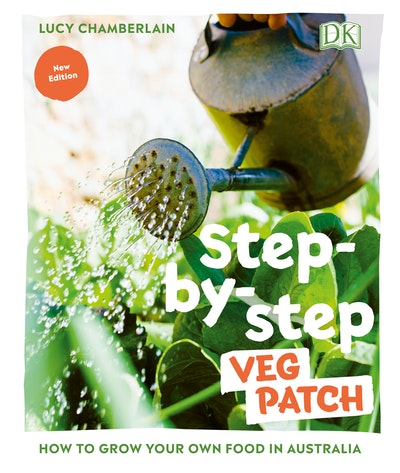Have you started growing your own food yet? There's many reasons to seriously consider it, here's a few from DK's latest Australian gardening book.
Anyone who has ever picked fresh strawberries will know how unlikely it is that the first harvest will reach the kitchen. The urge to eat them there and then usually beats all but the strongest wills, reflecting one of the main reasons to grow your own – taste.
Freshness equates to flavour, and growing your own crops allows you to pick them at their best. Compare shop-bought broad beans to your own crop and you’ll never buy them again. However, there are also many other reasons to grow your own crops, whether it’s for your health and that of your family, for environmental concerns, or for the pleasure of it.
Fresh and Healthy
The positive effects on health of eating fruits and vegetables has long been known, but there are also direct benefits of actually growing them yourself. Vitamin and antioxidant levels are at their highest when crops are first picked, with the levels falling by half after 7–14 days of harvest.
Although supermarkets usually sell fresh produce, you can rarely tell how long ago it was picked or how well it has been stored, especially if it has been imported or kept in refrigeration. Growing your own food means you can pick fruits and vegetables no sooner than is really necessary, ensuring they are as fresh, tasty, and nutrient-packed as possible.
Growing Fitter
In addition to eating more healthily, the tasks involved in growing your own crops also provide good exercise, improving fitness, stamina, and flexibility. Just one hour’s digging can burn off over 300 calories, while even light pottering means being active.
Good for the Environment
Local and global concerns have driven many people to assess the impact of food production on the environment,and terms such as “food miles” and “carbon footprint” have become synonymous with a responsible, ecologically minded attitude. Producing your own food at home embraces both these concepts - food miles are zero and the carbon footprint is negligible.
Growing your own fruit and vegetables isn’t just about jumping on the latest bandwagon, however; it’s pretty fundamental – people need food. By growing it in your own backyard or community garden, you are reducing the strain on global. supplies. You will also know exactly how “green” it is or how ethically it has been produced – organically perhaps. You can also share your surpluses, helping to reduce the global impact of others.
.jpg)












